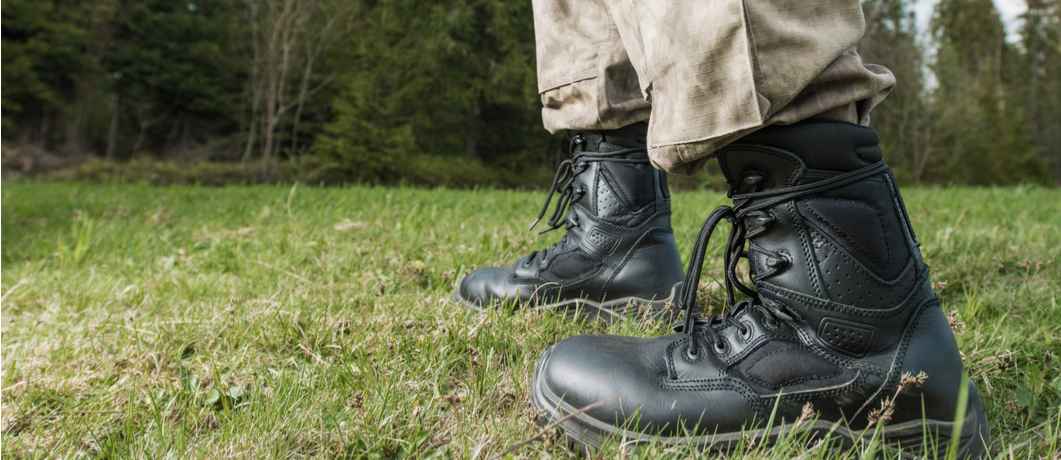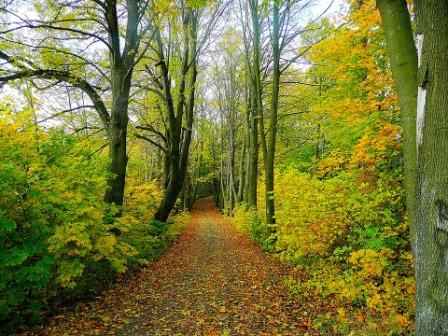Forest Ranger Officer
Who Is A Forest Ranger Officer
A forest range officer put simply, takes care of a forest region while managing daily activities, projects, reporting and analysis about the progress of the plantation. As a forest range officer, your duties may include supervising various projects within a forest area, nurturing the wildlife and protecting it ensuring there are no illegal poaching and deforestation activities.
For example, you may be asked to manage a plantation project in a hilly forest area, where you’ll have to manage the plantation of 15,000 trees in a particular area. You’ll have to manage everything from ensuring good soil quality to planting adequate trees.
Roles & Responsibilities
Creating a safe environment for people to traverse through a forest.
Taking care of any animals that may be injured or need immediate help.
Putting a check on any dangerous or illegal activity in the forest.
Patrolling the entire forest area every day to ensure that operations are running smoothly. You may have to traverse 25-30kms of forest land in one go so you can report to the traffic patrolman that the road conditions are fine for vehicles to pass.
Ensuring there is no debris or broken trees that might obstruct or derail incoming traffic and people passing through the area.
Collecting data on soil, plantation and reporting the rainfall data to the concerned authorities.
Protecting people and animals entering and leaving the forest area sometimes even using arms and ammunition.
Supervising certain areas of the forest ensuring there is no obstruction to camping or scientific data collection/research.
Conducting campaigns for ecological sustainability and growth.
Paying vendors and suppliers for work related to the forest ecosystem and natural adaptation.
Ensuring there is sustainable extraction of timber and timber-related products from forest regions that is done in an ethical and organised manner.
Take the Mentoria career assessment, to find out how well-suited you are as a Forest Ranger.
Discover your Ideal future
Get expert guidance and mentorship towards your perfect fit.
What Skills Will I Need To Have To Do This Job Well?
As exciting as this sounds, there are some things you’ll need to learn to do the job right:
SURVEYING/GEOLOGY SKILLS
You will need to study geology or engineering that will help you survey a large chunk of forest land easily and without any supervision. You should be able to read topographical maps, understand the terrain under survey, as well as be able to enter any area with being an expert in the domain of surveying.
WEAPON-HANDLING SKILLS
As a part of your training, you will have to learn how to pick up, engage and traverse large areas of land with weapons. They are mostly for protection purposes and ensure there is no trouble in the area. Handling weapons appropriately could prove to be one of the most important aspects of this job profile.
MANAGERIAL SKILLS
Good rangers make for good managers when they are adept at their jobs and have great people skills. Managers who can effectively delegate tasks, and can take appropriate action when a task is not completed on time, make better rangers. You need to ensure that you can manage large teams who will be in constant communication with you and will need your guidance.
PROJECT MANAGEMENT SKILLS
You will need to have excellent project management skills while understanding lead time, necessary resources and skilled labour force available to carry out any forest-related project. Project management skills, though underrated, are essential for the sustained growth of the forest area and effective undertaking of all activities.
FITNESS
Often rangers have to complete fitness tests like completing 25 kms walk in four hours. They need to have higher-than-average lung capacity and be fit mentally and physically.
Since this job requires a lot of movement and walking around, your fitness levels must be higher than regular.
What Will My Workplace Look Like?
Your work life will vary, depending on where you work, your role and the scale of your job.
As a forest range officer, you will have to devote your work life to the forest. Most rangers spend a majority of their time in or around the forest area, ensuring the area is protected under government law. The forest range officer’s work involves both management-focused tasks, as well as protection and patrolling duties.
If you’re a part of a patrol unit, then you’ll be working with multiple rangers in your patrol area. You will need to constantly communicate with other rangers in an effort to maintain security in and around the area.
You may have to manage crisis situations while your managers provide support in these areas.
What Is My Scope For Career Growth As A Forest Ranger Officer?
If you are entering the industry as a beginner, you will need to clear an entrance exam under the Forest Range Officer’s examination. You will need to a Bachelor’s degree in engineering, geology, or statistics to be eligible, as well as be under the age of 30 years. You will also have to meet the basic fitness examinations and criteria to be eligible.
After you’ve worked a few years in the industry, you can get promoted to the role of Forest Manager or Senior Manager and focus more on strategy-related areas, rather than just patrol and protection. You will have to work harder and longer hours until you are able to manage multiple forest lands for development.
You can eventually manage more forest zones under your command and hold a higher rank in the management till you can effectively manage development, growth and sustainability-related areas with ease.
Thinking of a career as a Forest Ranger? Take the Mentoria assessment & talk to our career counsellors to get personalized step-by-step guidance for your future career path.
How Much Will I Get Paid?
The exact number will depend on where you’re working, your education, skill set and internship experience. However, we can give you a general idea.
A junior forest range officer can earn between INR 3,00,000 to 4,00,000 in India. At the managerial level, a senior manager can earn between INR 8,00,000 to 9,60,000 backed by experience.
Okay, I'm sold. This is amazing

STEP 1: Class XI-XII/Junior College
At this level, learn the basics of geology and other relevant sciences, and the essential skills in forest development and survival skills.

STEP 2: Graduate Degree
You will have to earn a 3-year Bachelor’s degree in statistics, engineering, forestry, or natural resource management, as well as get diplomas in areas related in survival skills, natural area management, etc.

STEP 3: Internship
You will need to apply for an internship or a first job at any of the forest reserve areas. You can apply for the many positions open in the field, and hunt for opportunities as and when they come up. You will have to visit the hiring centres directly, as well as apply on job websites and social media platforms.

STEP 4: Apply for Jobs
With an internship, some experience and a BSc degree in geology and statistics, you can apply for jobs. You can directly apply and utilise the network with the help of your professors and training academy practitioners.
This process could take some time, as there could be tests and physical examinations to clear.
Congratulations, you are now officially a Forest Range Officer!

STEP 5: Postgraduate Degree
After completing your Bachelor’s degree, you may want to expand your scope of learning by studying for a Master’s degree in Forest Management. For more knowledge and information about the subject matter, you may want to apply for scholarships and pursue a Master’s degree in your areas of expertise.
The Indian Institute of Forest Management in Bhopal, Madhya Pradesh could be a good place to look up for higher studies in the discipline.
Sign Up for Mentoria - India’s Most Reliable Career Discovery Platform
Mentoria promises to handhold you during your career discovery journey - from the time you sign up until you get into a career you love.
Discover your Ideal future
Get expert guidance and mentorship towards your perfect fit.


